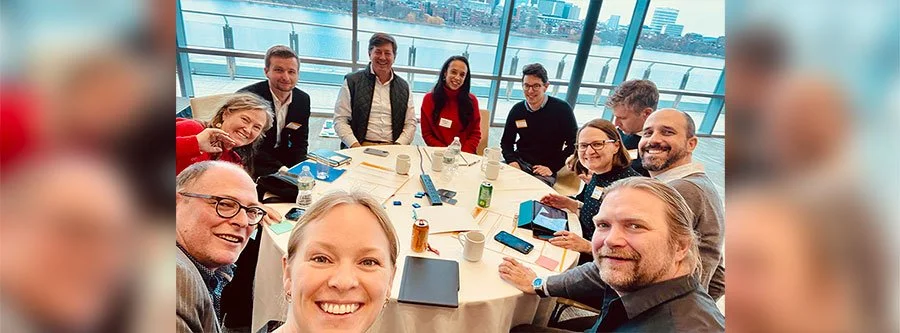Impact Engine Announces $85M Close of Second Private Equity Fund, Bringing Total Assets Under Management to $240M
New Fund Has Already Made Commitments to Six Funds and Seven Companies Across Health Equity, Climate Tech and Economic Opportunity Sectors
"We are proud to close our second private equity fund with the support of prominent foundations and family offices, and their advisors, all of whom are aligned with our strategy to put private capital to work effectively and profitably in ways that make meaningful impact alongside compelling financial returns,” said Jessica Droste Yagan, Partner & CEO of Impact Engine.
Selected media coverage: AltAssets | Barron's | Built in Chicago | Buyouts | Crain's Chicago Business | Chicago Business Journal | Fin News | ImpactAlpha | Opalesque
IE Chief Investment Officer & Partner Priya Parrish writes about the rise of the specialist impact investor for Impact Entrepreneur.
"You need the deeper understanding of impact regardless of the sector you’re investing in, and not just to find the best opportunities but to help your portfolio companies succeed," she writes. "Our experience of investing for more than 10 years has shown that impact funds have even deeper domain expertise than non-impact sector specialists, and this expertise can lead to better investment decisions and value creation for portfolio companies."
Each year Impact Engineers attend dozens of conferences and events.
Jessica Droste Yagan filed this dispatch from the Systemic Investing Summit 2024 in Cambridge Massachusetts, hosted by TransCap Initiative, the MIT Sloan Sustainability Initiative, The ImPact, and the Meridian Institute. She writes:
"It was a pleasure to spend two days in a room full of people thinking about how to apply systems-change thinking to impact investing. Using a "systems lens" has precedent in philanthropic and government interventions, but it is relatively new to the impact investing scene. Simply put, a system lens means that you recognize that any one impact investment isn't standing alone in the system it operates in. For example, if you are using impact investing as a tool to affect a specific issue such as job creation in a particular neighborhood, you would want to understand the other levers of change that might work for or against your goal, as well as the consequences your investment might have. In other words, being a "systemic investor" means working to understand the system you're operating in and trying to change it.
"I'm interested in applying a systems lens to the finance industry to better understand where the levers are for interventions that can help reimagine why capital flows in current ways and with current implications for many (all?) social and environmental issues. I would like to co-imagine and co-create a finance system that is more additive for society, and I was thrilled to find others at the conference who shared that goal. We will certainly be continuing the conversation!"
Stay tuned for future dispatches from Impact Engine, including SXSW Edu next month.
Candidly, the student debt and savings optimization platform, published its first annual Impact Report. The company announced over $1 billion in projected impact of the loans of its end users, with the average person lowering their payments by $335 per month.
PadSplit, the house-hacking marketplace, announced it has surpassed 10,000 rooms under its umbrella across 18 US cities, providing 23,000+ people homes. PadSplit's average user saves $332 per month for a total of $47.4 million in savings for the lifetime of the company.
PosiGen, the affordable solar provider, and the City of New Orleans cut the ribbon on a new Solar for All partnership initiative this month. New Orleans Mayor LaToya Cantrell shared her own experience, saying "I have a partnership with PosiGen, this is my personal partnership, where I have solar panels on my home and it’s something I’ve seen benefit me." The program is part of the city's overall plan to establish solar powered resilience hubs for natural disasters and cut net carbon emissions to zero by 2050.
Vacuumschmelze, the magnetic material manufacturer based in Germany, unveiled a new venture to produce rare earth metal components for electric car motors. VAC is partnering with South Korean company LS Eco Advanced Materials (whose parent company is a Hyundai and Kia Motors supplier) to produce 1,000 tonnes of neodymium per year starting in 2027. Global demand for these key magnets is increasing as sales of electric cars rise from 1 million per year in 2017 to 10 million in 2022.










